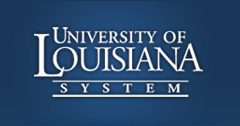Event Title
Students Without Borders: A Service-Learning Program
Location
Hamilton Hall 115
Session
Session 5
Start Date
12-4-2014 9:30 AM
End Date
12-4-2014 10:30 AM
Description
Criminal Justice students at the undergraduate and graduate levels developed a project called “Students Without Borders.” This project was organized by students and faculty as a service learning activity. On November 12, 2013 Typhoon Haiyan (known in the Philippines as Typhoon Yolanda) went down in history as the deadliest and most destructive weather ever recorded. About 9.8 million people were affected, according to Philippine estimates. Over 10,000 or more were people killed, based on reports from Philippine government officials. Our students and faculty realize that a disaster of that magnitude will ultimately lead to an increase in criminal activity under the Social Disorganization Theory, an approach that posits that crime results when social control among the traditional primary groups, such as the family and the neighborhood, breaks down because of social disarray within the community. The students and faculty felt it necessary that we do our part to help minimize the risk of increasing crime rate. Over 2.5 million people in the Philippines are in need of emergency food and clothing. On November 18, 2013, students and faculty started collecting clothing, donations and non-perishable items to send to the Filipinos. The program was a success because on January 17, 2014 the Philippine Disaster Relief workers came to Grambling and picked up over 1,000 pounds of food, an undetermined amount of clothing, and more than $800.00 in donations.
Students Without Borders: A Service-Learning Program
Hamilton Hall 115
Criminal Justice students at the undergraduate and graduate levels developed a project called “Students Without Borders.” This project was organized by students and faculty as a service learning activity. On November 12, 2013 Typhoon Haiyan (known in the Philippines as Typhoon Yolanda) went down in history as the deadliest and most destructive weather ever recorded. About 9.8 million people were affected, according to Philippine estimates. Over 10,000 or more were people killed, based on reports from Philippine government officials. Our students and faculty realize that a disaster of that magnitude will ultimately lead to an increase in criminal activity under the Social Disorganization Theory, an approach that posits that crime results when social control among the traditional primary groups, such as the family and the neighborhood, breaks down because of social disarray within the community. The students and faculty felt it necessary that we do our part to help minimize the risk of increasing crime rate. Over 2.5 million people in the Philippines are in need of emergency food and clothing. On November 18, 2013, students and faculty started collecting clothing, donations and non-perishable items to send to the Filipinos. The program was a success because on January 17, 2014 the Philippine Disaster Relief workers came to Grambling and picked up over 1,000 pounds of food, an undetermined amount of clothing, and more than $800.00 in donations.
